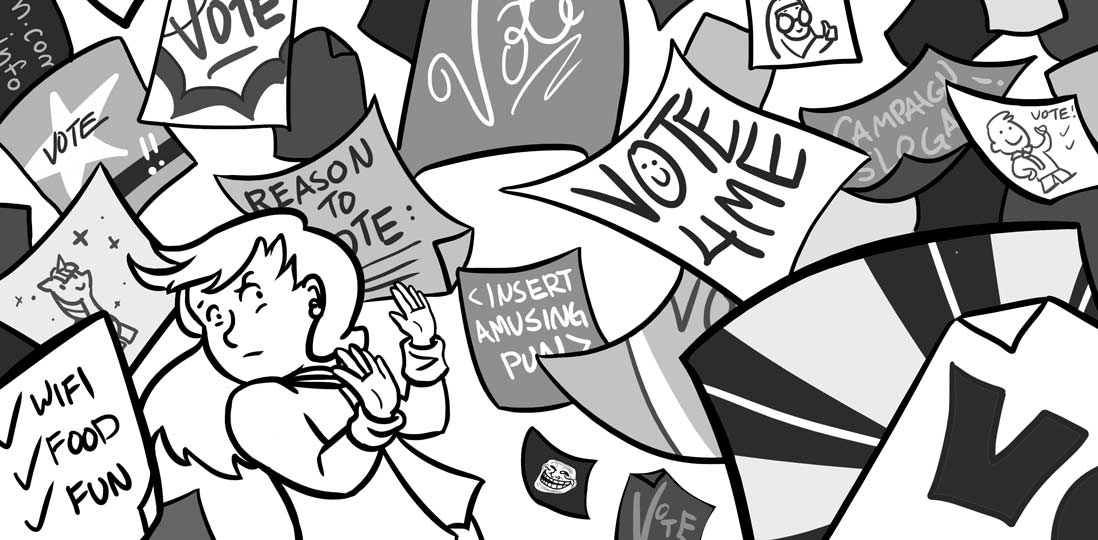
What to look for before voting
The day campaigning for the Students’ Union election begins is overwhelming. You arrive on campus to find every inch of blank vertical space plastered with posters. There’s a disproportionate number of your fellow students walking around in themed costumes trying to get your opinion on student government.
But voting is still important. The SU is the face of the student body to the public and the powerful. Elected executives work full-time and earn a hefty salary. They control MacHall and a budget of $18-million dollars. It’s easy to dismiss student government as a joke, but our union is substantial enough to be worth your time.
Unless you’re an SU representative or you work at the Gauntlet, you probably don’t pay much attention to student politics. This makes deciding who to vote for a hard call. It’s difficult to tell who’s prepared for the job without doing some research, and it’s easy to be fooled by someone with slick campaign posters or a charming personality.
Knowing what responsibilities fall under each portfolio is important. Every year, some topics are so pervasive that everyone wants to talk about them — transparency, mental health, fee hikes. But executives don’t just get to work on the projects that interest them. Each position has a certain set of responsibilities.
The vice-president external is responsible for representing students at the municipal, provincial and federal levels of government. The budget and lease negotiations are controlled by the vice-president operations and finance, while the vice-president academic is responsible for undergraduate research and classes. Planning events is under the direction of the vice-president student life. The president’s portfolio is the most flexible, but they’re generally in charge of setting a direction for the SU.
Candidates that didn’t bother learning the responsibilities of the position they’re running for aren’t worth your time.
The SU can’t change everything they want. We’d all like it if tuition was lower. But that isn’t going to happen, and a candidate promising that is just trying to win a handful of votes.
This isn’t to say that fee hikes aren’t important. But candidates who claim they can stop large-scale, endemic issues in a one-year term don’t have realistic goals. Look for candidates who plan to tackle large issues with small, manageable steps. We have a better chance of getting somewhere if we focus on local issues and tangible changes instead of grandiose promises.
Every year, there’s almost a complete staff turnover among elected SU executives and representatives. This means candidates will propose already failed ideas.
Inter-faculty events are cancelled year after year because no one participates in them. Apps are difficult and costly to develop and maintain. And the SU already listens to every piece of student consultation they can get their hands on. If a candidate couldn’t find out what was happening less than four years ago in an organization they want to run, they’re not a good choice.
And watch out for candidates with platforms made up of buzzwords. Sustainability. Awareness. Transparency. Accountability. These words mean that the candidate didn’t have enough ideas to form an actual platform, but they still want to get elected.
Candidates need ideas they can implement. If their entire platform is rhetoric, they’ll spend a year in office without anything to show for it.
For better or for worse, the people running around campus in costumes will be in control of an organization with an $18-million budget. If you plan on voting, put some thought into it.
Kate Jacobson, Gauntlet Editorial Board
